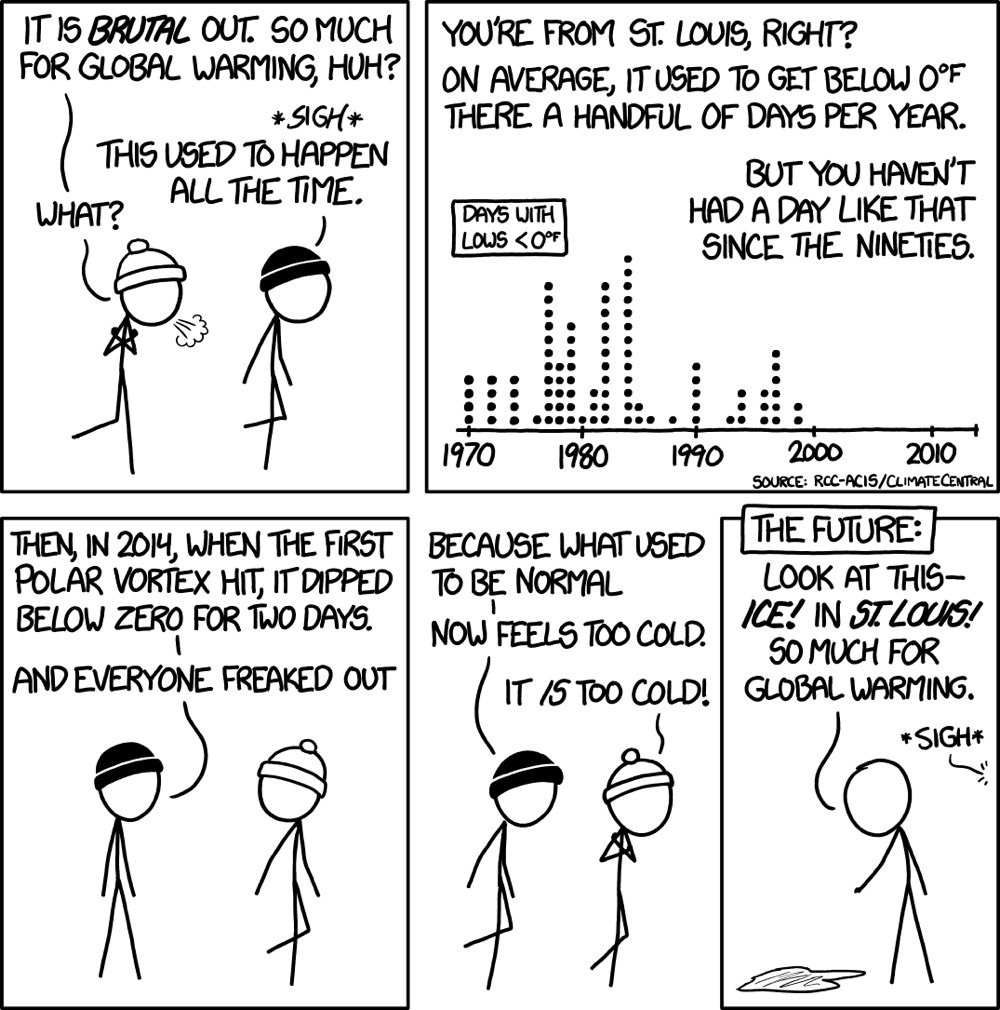It’s So Cold Out! Where’s the Global Warming?!
In what is now an annual tradition, when the temperatures in some part of the US plunge below zero degrees on the Fahrenheit scale, some nitwit Republican climate change-denier live-tweets from the back pocket of industry something like “It’s so cold out where’s the global warming when we need it???? #OwnTheLibs”. This time around, it was our very own Shitwhistle-in-Chief who tweeted merrily about the current polar vortex bearing down on the Midwest:
In the beautiful Midwest, windchill temperatures are reaching minus 60 degrees, the coldest ever recorded. In coming days, expected to get even colder. People can’t last outside even for minutes. What the hell is going on with Global Waming? Please come back fast, we need you!
Some time ago, Randall Munroe addressed what severe cold in the US has to do with climate change on XKCD: it used to be colder a lot more often but we don’t really remember it.

When I was a kid growing up in Wisconsin, I recall experiencing overnight low temperatures in the -30°F to -40°F range several times and vividly remember being stranded in my house for a week in 1996 when the all-time record low for the state (-55°F) was established in nearby Couderay.
Munroe’s observation isn’t even the whole story. Jennifer Francis, senior scientist at the Woods Hole Research Center, writes that the polar vortex bringing cold air into the Midwest is connected to the rapidly warming Arctic.
Because of rapid Arctic warming, the north/south temperature difference has diminished. This reduces pressure differences between the Arctic and mid-latitudes, weakening jet stream winds. And just as slow-moving rivers typically take a winding route, a slower-flowing jet stream tends to meander.
Large north/south undulations in the jet stream generate wave energy in the atmosphere. If they are wavy and persistent enough, the energy can travel upward and disrupt the stratospheric polar vortex. Sometimes this upper vortex becomes so distorted that it splits into two or more swirling eddies.
These “daughter” vortices tend to wander southward, bringing their very cold air with them and leaving behind a warmer-than-normal Arctic.
(via @mkonnikova)





Stay Connected